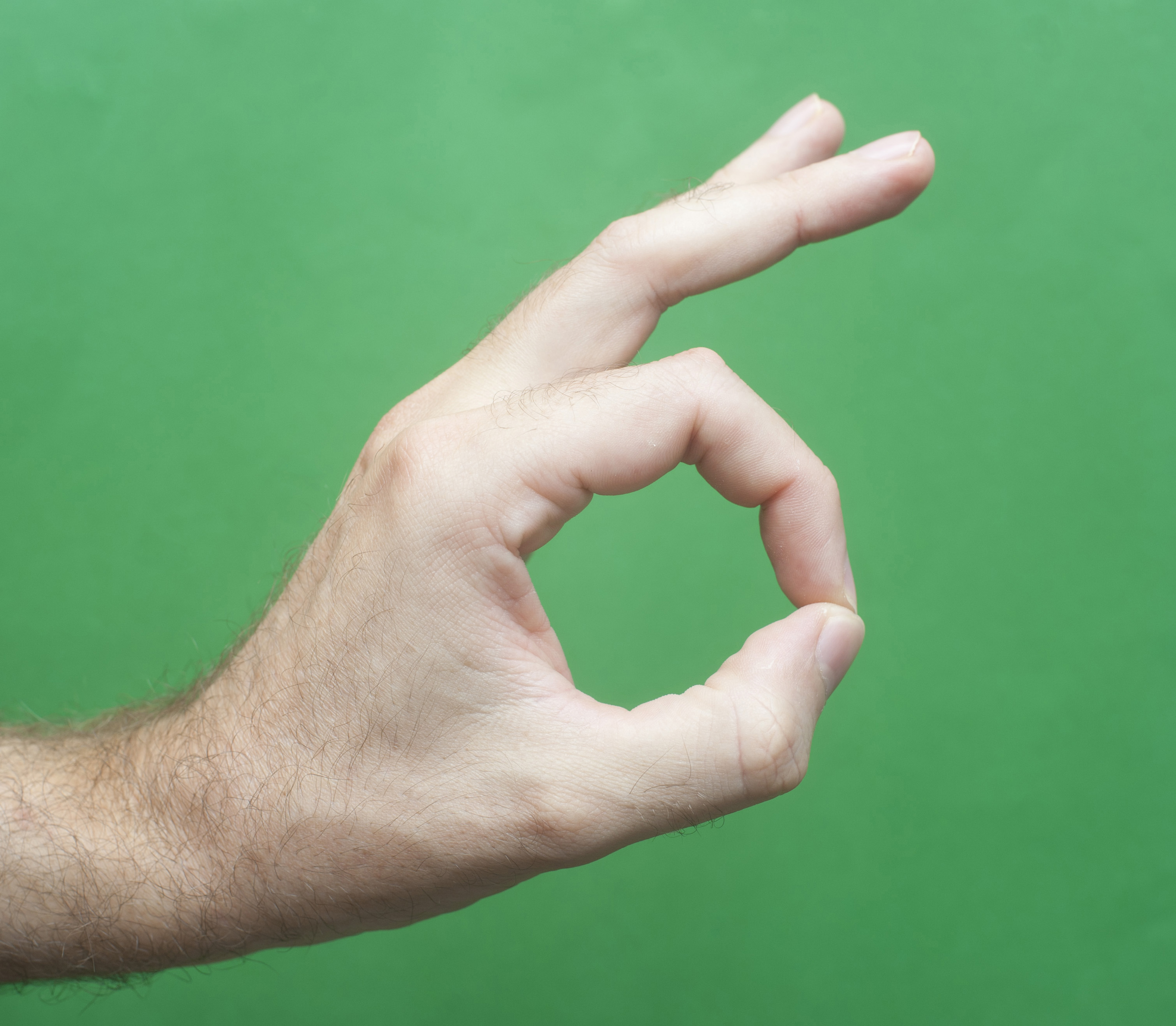Is It Okay To Say “Mazel Tov”? Understanding This Joyful Expression
Have you ever found yourself at a celebration, perhaps a wedding or a graduation, and heard someone exclaim, “Mazel Tov!”? Maybe you felt a little curious, or perhaps even a tiny bit hesitant, wondering if it's something you, too, could say. It's a phrase that certainly carries a lot of warmth and good cheer, and, you know, it’s quite often heard in moments of great happiness. This very common expression, like so many words that spread widely, seems to pop up in lots of different places, doesn't it?
It's a really interesting question, figuring out when and how to use phrases that come from another culture. We want to be respectful, of course, and we also want to join in the good feelings. So, is it okay to say “Mazel Tov”? That's a thought many people have, and, like your curiosity about saying "OK" to show agreement, it's about wanting to connect properly. We'll look into this, and, you know, it’s a good thing to be thoughtful about how we express ourselves.
This article will help you get a better sense of “Mazel Tov,” where it comes from, and when it's truly fitting to use. We'll explore its meaning, talk about its journey into broader use, and give you some clear ideas about when it’s a lovely thing to say. You might be surprised, as a matter of fact, at just how welcoming this phrase can be once you know a bit more about it. So, let's unpack this joyful expression together.
- Laura Geller Net Worth
- Derrick Milano Net Worth 2024
- Tinashe Net Worth
- Emile Hirsch Net Worth
- Net Worth Lil Jon
Table of Contents
- Understanding “Mazel Tov”: Its Roots and Reach
- When Is It the Right Time to Say “Mazel Tov”?
- Is “Mazel Tov” Only for Jewish Occasions?
- Showing Respect and Genuine Warmth
- Frequently Asked Questions About Saying “Mazel Tov”
Understanding “Mazel Tov”: Its Roots and Reach
“Mazel Tov” is a phrase that, like the word "OK" which spread across the globe, has truly become a part of many different conversations. It's not just a simple saying; it carries a real sense of good feeling and shared joy. You know, it’s a bit like how "OK" expresses approval or agreement, "Mazel Tov" expresses a wish for good fortune. It's really quite a powerful little phrase, isn't it?
What Does “Mazel Tov” Actually Mean?
At its core, “Mazel Tov” (pronounced MAH-zel TOHV) comes from Hebrew and Yiddish. It means "good luck" or "good fortune." However, its usage is not quite like saying "good luck" before a test. Instead, it’s more like saying "congratulations!" after something good has already happened. It’s a way of acknowledging someone’s good fortune or happy event. So, when you hear it, or say it, you are basically recognizing that something wonderful has occurred. It's a declaration of shared happiness, in a way, which is a lovely thing.
The phrase breaks down into "mazel," meaning "luck" or "constellation" (referring to fate), and "tov," meaning "good." So, literally, it’s "good luck." But, you know, its practical use is always about celebrating something that has already come to pass successfully. It’s not a wish for something to happen in the future, but rather a recognition of a happy outcome in the present. This distinction is pretty important, as a matter of fact, for using it correctly.
- Chris Elliott Net Worth
- Actor Samuel Jackson Net Worth
- Ross Mathews Net Worth
- Cooper Kupp Net Worth
- Ot Genasis Net Worth
How “Mazel Tov” Spread Like a Positive Wave
Just as "OK" started in American English and then traveled everywhere, "Mazel Tov" has also journeyed far beyond its origins. It came from Jewish communities, particularly those speaking Yiddish, and has, in some respects, moved into the wider world. You see it in movies, hear it on television, and sometimes, you just hear people say it in everyday life. This spread shows how a word, when it carries a universal sentiment like joy or congratulations, can find a place in many different cultures. It’s a testament to how language can connect people, isn't it?
The reason for its widespread acceptance, you could say, is its clear and positive meaning. There’s no ambiguity; it’s always about something good. People often pick up phrases that convey such clear, positive messages, especially when they are associated with happy events. It’s a simple, yet powerful, way to share in someone else's happiness. This is somewhat similar to how "OK" became so globally recognized for expressing approval or acceptance, because its meaning is so straightforward and useful. People just get it, you know?
When Is It the Right Time to Say “Mazel Tov”?
Knowing when to say "Mazel Tov" is key to using it respectfully and effectively. It’s a phrase that really shines during moments of triumph or significant achievement. You don't want to just throw it around, you know? It's about recognizing a special moment. So, when someone shares good news, and you feel that genuine happiness for them, that's often a good sign.
Celebrations and Milestones
This is where "Mazel Tov" truly belongs. Think about big life events:
- Weddings: A classic moment for a hearty "Mazel Tov!" when the couple is announced or after the ceremony.
- Births: Welcoming a new baby into the world is a perfect occasion.
- Bar/Bat Mitzvahs: A significant coming-of-age ceremony in Jewish tradition.
- Graduations: Celebrating academic achievements, from high school to university.
- Engagements: When two people decide to commit to marriage.
- New Jobs or Promotions: A career success is definitely something to cheer for.
- New Homes: Moving into a new place is a big step, and a "Mazel Tov" can fit right in.
In these situations, saying "Mazel Tov" is a warm way to share in the excitement. It shows you recognize the importance of the moment for the person or people involved. It's a way of saying, "I'm happy for you, and I acknowledge this wonderful thing that has happened." You know, it’s a very direct expression of good wishes for their good fortune.
Everyday Good News
While it’s most common for big milestones, you can also use "Mazel Tov" for smaller, yet still significant, pieces of good news. For example, if a friend tells you they passed a difficult exam, or that their child got into a special program, a "Mazel Tov" can be a perfectly fine response. It's about the sentiment of shared joy and recognition of a positive outcome. Just be sure it truly feels like a moment of achievement or good fortune, rather than just a casual "that's nice." It’s a bit like when you say "OK" to acknowledge understanding; it fits specific situations. You wouldn't say "OK" for everything, and the same goes for "Mazel Tov," you know?
The key, really, is to gauge the situation and the person you are speaking with. If they are someone who uses the phrase, or if you are in a setting where it is commonly heard, then it’s probably a good fit. If you're unsure, a simple "congratulations" is always a safe and kind option. But, quite often, "Mazel Tov" can add a little extra sparkle to your good wishes.
Is “Mazel Tov” Only for Jewish Occasions?
This is a very common question, and it's a good one to ask. While "Mazel Tov" certainly has its roots deeply planted in Jewish culture and is a staple at Jewish celebrations, its use has, in some respects, broadened significantly. Think about how the word "OK" started in American English but now, you know, practically every taxi driver from Buenos Aires to Bangkok understands it. "Mazel Tov" has followed a similar, if perhaps less universal, path.
Many people, regardless of their religious background, have adopted "Mazel Tov" as a general expression of congratulations for happy events. You might hear it at a non-Jewish wedding, a graduation, or when someone gets exciting news. It’s often used by those who have Jewish friends or family, or who simply appreciate the phrase's positive energy. So, no, it's not exclusively for Jewish occasions anymore. It has, for many, become a general term of celebration. It’s a bit like how certain foods or music styles cross cultural boundaries; words can, too.
The important thing is the spirit in which you say it. If you say "Mazel Tov" with genuine happiness and respect for the occasion, it's generally well-received. It’s about sharing in someone's joy, and that’s a universal human experience. People appreciate sincerity, you know? It’s not about checking off a box for cultural correctness, but about truly wanting to convey good wishes. For more on cultural expressions, you could learn more about on our site, which might give you some further context about how words move between groups.
Showing Respect and Genuine Warmth
The beauty of "Mazel Tov" lies in its ability to convey strong positive feelings. When you say it, you are not just saying "good luck"; you are expressing heartfelt congratulations and a wish for continued good fortune. It's a robust way to share in someone's happiness. The key to using it well is to make sure your intention is pure and your delivery is sincere. It’s not a word to be said flippantly, you know?
If you’re ever in doubt, consider the context and your relationship with the person. If you're at a Jewish event, or if you know the person uses the phrase often, then it’s very likely a welcome expression. If you're unsure, but you want to try it, just say it with a smile and a genuine tone. Most people will appreciate the effort to connect and share in their happiness. It’s about the spirit of connection, really. You could also think about this page for other ways to show support and good wishes.
Ultimately, saying "Mazel Tov" is a lovely way to join in moments of joy and success. It's a phrase that, like "OK" which denotes approval and acceptance, carries a strong positive message. When used with sincerity and respect, it becomes a powerful tool for celebrating life's happy moments. So, yes, it is generally okay to say "Mazel Tov," especially when you mean it from the heart and are celebrating a genuine happy event. It’s a wonderful way to spread good cheer, and, you know, who doesn't like a little extra good fortune shared around?
Frequently Asked Questions About Saying “Mazel Tov”
Can I say "Mazel Tov" if I'm not Jewish?
Absolutely! As a matter of fact, many people who are not Jewish use "Mazel Tov" to congratulate others on happy occasions. It has, you know, really moved beyond its original cultural boundaries. The most important thing is to say it with sincerity and respect for the person and the event. It’s about sharing in joy, which is a universal feeling. So, if you feel genuine happiness for someone’s good fortune, it’s perfectly fine to say it.
Is "Mazel Tov" the same as "good luck"?
While "Mazel Tov" literally translates to "good luck," its practical use is different. It’s not a wish for something to happen in the future, like saying "good luck with your exam." Instead, it's said *after* a positive event has already occurred, almost like saying "congratulations!" It's a recognition of good fortune that has already happened. So, you know, it’s more about celebrating an achievement or a happy outcome that is already a reality.
What's the best way to respond if someone says "Mazel Tov" to me?
If someone says "Mazel Tov" to you, the simplest and most common response is a warm "Thank you!" or "Thanks!" You can also just smile and acknowledge their good wishes. There's no special reciprocal phrase you need to say back. They are just sharing in your happiness, and, you know, acknowledging their good wishes is always a kind thing to do. It’s a bit like when someone says "OK" to your request; a simple "thanks" works just fine.
- Net Worth Of Jordan Belfort
- Net Worth Of Tina Fey
- Ceedee Lamb Net Worth
- Melissa Oneil Net Worth
- Chris Elliott Net Worth

Free Image of Conceptual Man Hand Showing Okay Sign | Freebie.Photography

Unveiling The Secrets Of Okay: A Guide To Perfectly Acceptable Everything

Happy smiling emoji with Okay sign, vector cartoon Stock Vector | Adobe